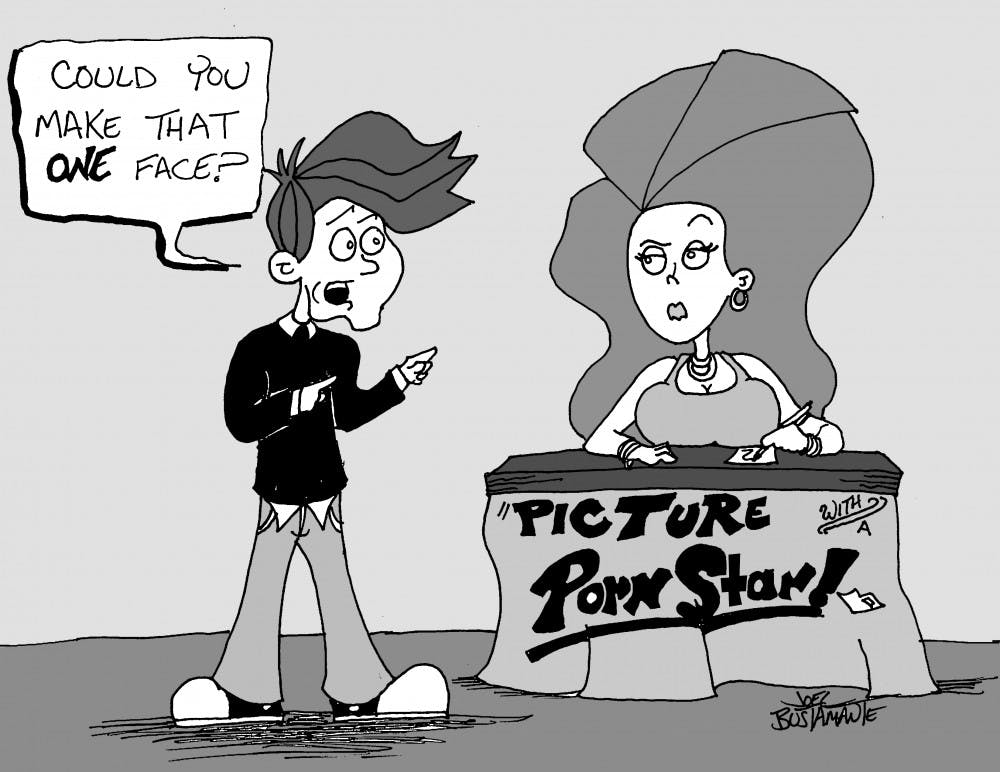Comedian and actor Russell Brand made waves recently by posting a video to his YouTube channel decrying the oversaturation of pornography in our culture.
Set off by the highly-regarded presence of the “Fifty Shades of Grey” film, Brand launches a variety of attacks on sensual imagery and hardcore material.
A claim he makes that has piqued the interest of the Editorial Board is porn’s negative effects upon how we view other human beings.
We side with Brand in this claim; while the expression of human sexuality is not something our culture should heap more shame upon, pornography and ever-present soft porn can most certainly have negative consequences upon how each of us views the bodies of others.
Brand said pornography encourages a viewer to see peers and ?strangers as objects. He goes on to say that as a straight man, he has often gazed upon a woman and regarded only her body and sexual potential.
This subconscious disregard for said woman’s personality, livelihood and well-being are then attributed to his experience with pornography.
Brand’s thinking is largely in line with objectification — a central ?aspect of classical feminist theory. According to the Stanford Encyclopedia of Philosophy, objectification has been present in the minds of progressive thinkers for centuries.
One of the greatest philosophers of the 18th century, Immanuel Kant wrote frequently about how humanity’s specialness distances it from ?being associated with ownership.
Unlike mere things, people have dignity — an inner worth versus a relative worth.
Feminist scholar Rae Langton proposed three novel explanations of objectivity in 2009 that help shed a contemporary light upon this issue: reduction to body, reduction to ?appearance and silencing.
The first involves treating an individual in an automatic, standard fashion based upon their body or body parts.
Reduction to appearance is the treatment of a person based primarily upon how they look. Finally, silencing assumes or forces the objectified ?individual to be incapable of speaking for himself or herself.
Two scholars that have been outspoken opponents of pornography, Catharine MacKinnon and Andrea Dworkin, have taken much inspiration from Kant’s theories.
They believe due to men’s consumption of pornography, women are reduced to objects designed to please and be used. This systemic abuse is a great threat to the dignity of all who are involved, regardless of which side they occupy.
While the majority of thought, writing and speech about pornography comes from a man-and-woman perspective, Brand makes a great point in saying that our culture has reached a place where freely commenting upon and staring at the ?bodies of others is unfortunately ?normal.
This can affect friendships, family dynamics, working relationships and encounters with strangers in ways that most of us casually dismiss. Porn may seem like a throw-away topic. But it is most certainly worthy of ?serious thought and discussion.




